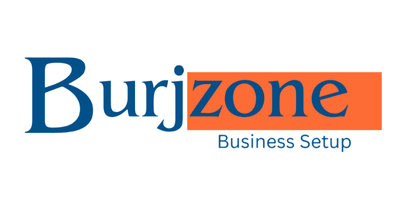Our Blog
Home / Blog
AML Compliance in UAE: What New Regulations Mean for SMEs
In recent years, the UAE has made Anti-Money Laundering (AML) compliance a national priority, introducing stricter laws and enforcement mechanisms to align with global standards. While large financial institutions were the initial focus, SMEs in sectors like consulting, real estate, accounting, and trading are now squarely in the spotlight—especially in high-activity zones like Dubai Mainland, Sharjah Free Zones, and Abu Dhabi Global Market (ADGM).
This article explains what AML compliance means for small and medium enterprises and how to navigate the evolving regulatory landscape in 2025.
1. Why AML Compliance Applies to SMEs Now
Many SMEs mistakenly believe that AML laws only apply to banks or large corporations. In reality, the UAE Cabinet Decision No. (10) of 2019 expanded AML obligations to several non-financial businesses, known as Designated Non-Financial Businesses and Professions (DNFBPs).
This includes:
Real estate brokers and agents
Accountants and auditors
Corporate service providers
Dealers in precious metals and stones
If your business offers any of these services in Dubai, Abu Dhabi, Sharjah, or elsewhere in the UAE, you are legally required to implement AML procedures.
2. Core AML Requirements for SMEs
Businesses subject to AML regulations must now comply with the following key areas:
Register with the UAE’s goAML system (hosted by the Financial Intelligence Unit)
Develop and implement an AML compliance policy
Appoint a Compliance Officer or MLRO (Money Laundering Reporting Officer)
Conduct Customer Due Diligence (CDD) and, when needed, Enhanced Due Diligence (EDD)
File Suspicious Transaction Reports (STRs) when necessary
Maintain records of transactions and customer identities for 5+ years
These apply whether you operate in Jumeirah Lakes Towers (JLT), Sharjah Airport Free Zone (SAIF), or RAK ICC.
3. Common Mistakes Made by SMEs
Many UAE SMEs fall into non-compliance due to:
Failure to register with goAML
Having generic AML policies copied from the internet
No training provided to employees on AML obligations
Not filing reports out of fear of regulatory scrutiny
Inadequate recordkeeping of client interactions
These oversights can lead to fines ranging from AED 50,000 to AED 5 million, business suspension, or license cancellation.
4. Red Flags to Watch in Customer Transactions
SMEs should be able to recognize suspicious behavior, including:
Clients refusing to disclose beneficial ownership
Large cash payments or unusual transactions
Customers based in high-risk jurisdictions
Complex ownership structures without clear purpose
Pressure to close deals quickly or avoid documentation
Awareness and internal controls are critical in preventing misuse of your business as a channel for money laundering.
5. Sector-Specific Considerations
Real Estate Firms in Dubai must ensure buyer/seller identities are verified, especially for off-plan or cash deals.
Corporate Service Providers must identify Ultimate Beneficial Owners (UBOs) when setting up companies.
Accountants and Auditors should assess client risk levels and implement STR filing processes.
Gold & Jewelry Traders need to report high-value cash purchases and track inventory sources.
6. Preparing for Inspections and Audits
Regulators such as the Ministry of Economy and Financial Intelligence Unit (FIU) conduct AML inspections. To prepare:
Keep documented policies and evidence of implementation
Maintain goAML login credentials and correspondence
Train your staff and document those trainings
Retain STR and transaction reports, even if no suspicious activity occurred
Final Thoughts
AML compliance is no longer optional for SMEs operating in the UAE. With greater enforcement from 2023 onward and even stricter expectations in 2025, being proactive is the only way to avoid penalties and maintain your reputation.
Whether you are a consultant in Dubai Silicon Oasis, a corporate service provider in Abu Dhabi, or a trader in Ajman Free Zone, implementing a proper AML framework is now essential to doing business legally and responsibly.
#AMLUAE2025 #goAMLRegistration #DNFBPCompliance #DubaiSMEAML #AMLForConsultantsUAE #MoneyLaunderingReportingUAE #ADGMRegulations #SharjahBusinessCompliance #UAEFinancialCrimesLaw #AMLTrainingForSMEs
